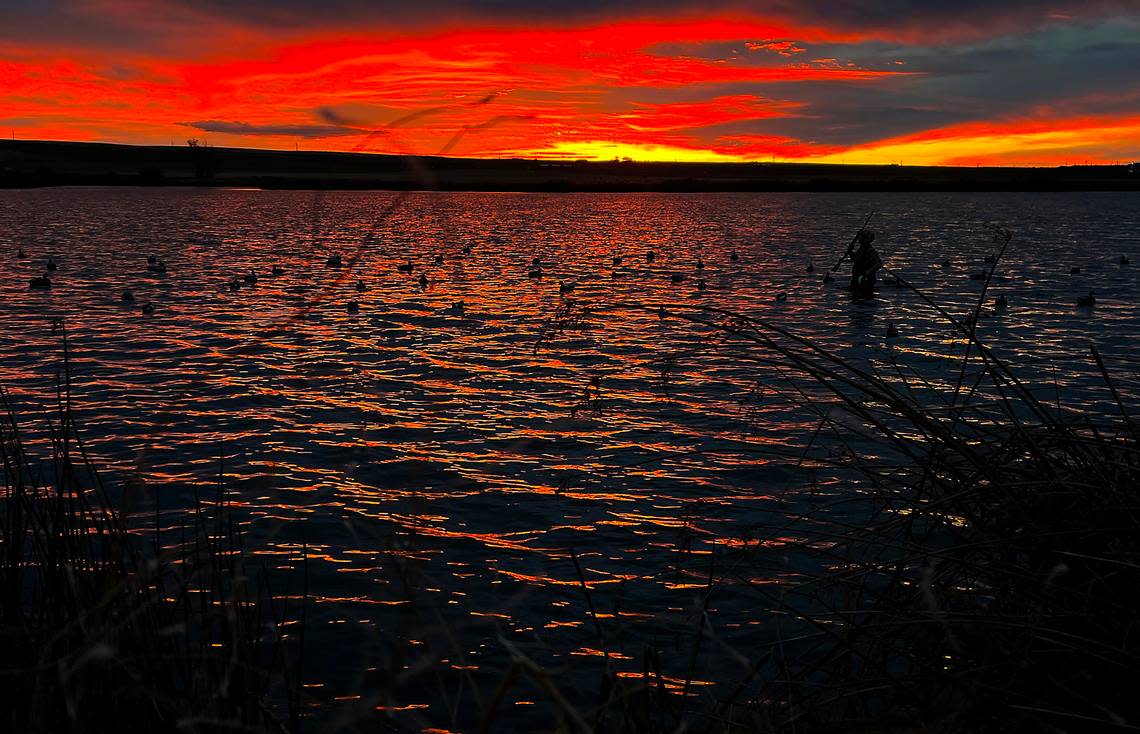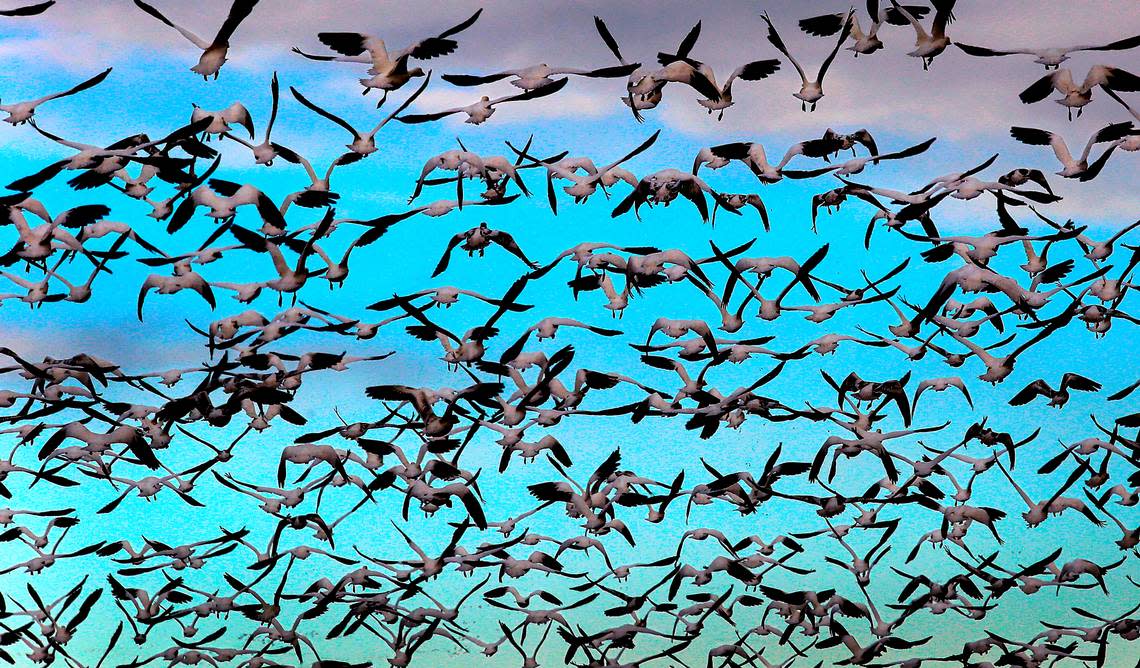Avian flu and cholera kills 100s more birds near Tri-Cities. How you can help stop the spread
Hunters and other visitors to national wildlife refuges need to take precautions to avoid spreading avian influenza and avian cholera, which have killed hundreds of birds in the Mid-Columbia this winter.
An estimated 400 to 450 waterfowl, mostly snow geese, have died at the Cold Springs National Wildlife Refuge east of Hermiston, Ore., said Steve Kahl, project leader for the Mid-Columbia River National Wildlife Refuge Complex, with headquarters in Burbank, Wash.
Some of those waterfowl tested positive for avian influenza, but they’re also susceptible to avian cholera, which has been more prevalent historically in Eastern Washington and Oregon, Kahl said.
In 2017, about 2,000 ducks died in the Burbank area southeast of the Tri-Cities, many of them at ponds just outside the McNary National Wildlife Refuge, due to an avian cholera outbreak.
At the McNary National Wildlife Refuge about 20 birds have died this winter, and about half have been tested with findings positive for from avian influenza.

That was after several birds, including a red-tailed hawk, white pelican and snow goose, were found dead of avian influenza from April to August.
At the Umatilla National Wildlife Refuge, across the Columbia River from Benton County, a few dozen waterfowl have been found dead.
Prevent spread of disease
Here’s what hunters and visitors to places with waterfowl need to know:
▪ Avian influenza poses a low risk to humans, but can be transmitted through extended contact with infected birds.
▪ Avian cholera is not known to be contagious to humans, but infected birds should not be eaten. White spots on the liver may indicate the bird is infected.
▪ Avian influenza can infect animals. It was detected in a baby raccoon at Sacajawea Historical State Park in Pasco in 2022. It also can infect dogs, which should be kept away from sick or dead birds.
▪ Wild birds can carry and spread avian influenza without showing signs of illness.
▪ Do not handle wild birds that are obviously sick or are found dead. Report them to the Department of Fish and Wildlife with its online form. Don’t try to move sick birds to a veterinarian, rehabilitation center or your home, as this can spread disease.

▪ The avian influenza virus can spread by contaminated clothing, shoes or hands to backyard poultry flocks or pet birds. Keep a separate pair of shoes to wear only in your game cleaning area or wear rubber boots and disinfect footwear after leaving the area.
▪ Wash your hands with soap and water immediately after handling game. If soap and water are not available, use hand sanitizer. Wash all tools and work surfaces with soap and water and then disinfect using a chlorine solution of 1/3 cup bleach per 1 gallon water.
▪ Double bag any found dead birds or the offal and feathers of hunted birds to prevent contaminating other birds, including birds of prey. Tie the inner bag, take off your gloves and leave them in the outer bag before tying it closed. Place the bag in a trash can that is covered and is not accessible to children, wild animals or pets, including pet birds.
▪ Do not eat, drink or put anything in your mouth while cleaning or handling game. Wear disposal gloves when cleaning game.
▪ Cook game thoroughly, with poultry reaching an internal temperature of 165 degrees to kill disease organisms and parasites.
▪ Leaving gear, such as waders and decoys in direct sunlight for several hours, can kill the bacteria that causes avian cholera.
